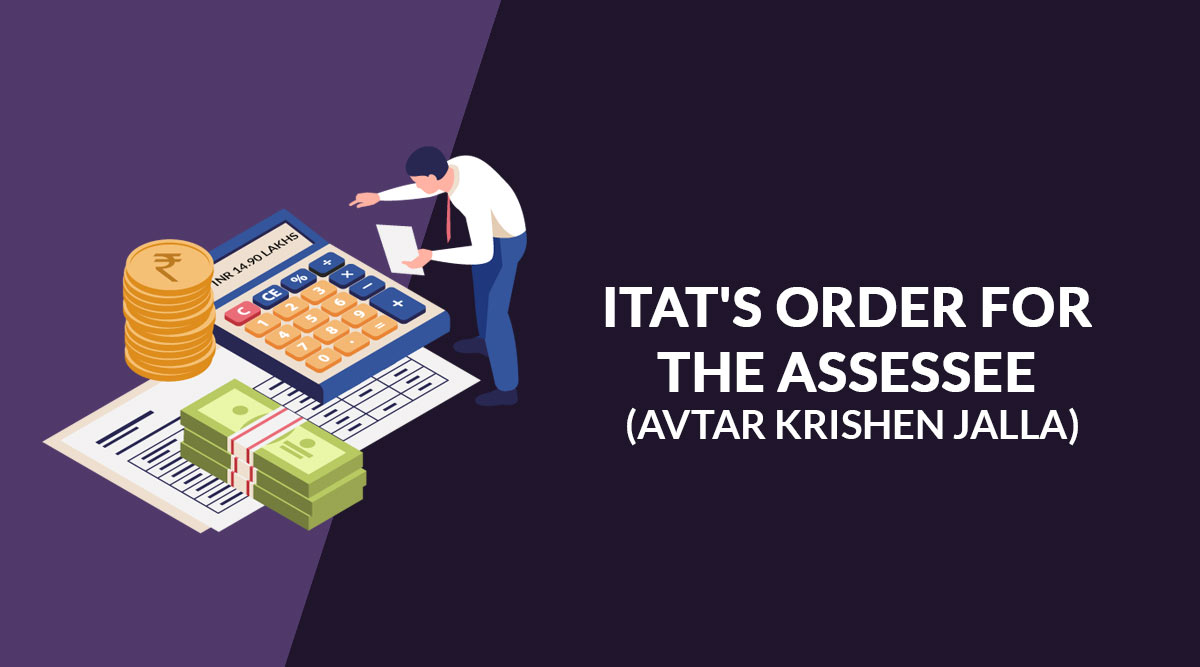
“The Income Tax Appellate Tribunal (ITAT), Delhi Bench upheld the decision of addition as the assessee failed to utilize the amount in the capital gain account within the statutory period.”
Here, in this case, the assessee, Avtar Krishen Jalla is an individual. It was observed by the Assessing Officer that during the time of assessment proceedings for A.Y. 2010-11, the assessee had sold a flat for a sum of Rs.70 lakhs during the Financial Year 2008-09 and earned a long-term capital gain of Rs.50 lakhs that was deposited by him in the capital gain account of SBI on the due date.
Out of the aforesaid capital gain, the assessee then invested Rs.35.10 lakhs in a new project within 36 months and could not utilize a sum of Rs.14.90 lakhs.
It was also observed that the assessee had filed his return of income for the Assessment Year 2012-13 wherein he declared the returned income of Rs18,49,027/- without offering the unused amount of Rs.14.90 lakhs to the tax exchequer.
Accordingly and Consequently, the case of the assessee was reopened u/s 147 of the Act after taking prior approval u/s 151. In response to the notice issued u/s 148 bearing date 26th March 2018, the assessee furnished the return of income declaring that the total income at Rs.18,49,027/- was that income that was originally returned.
Read Also: ITAT Bangalore Removed Capital Gains in Tax Under Section 50C
During the procedure followed in assessment proceedings, the AO asked the assessee to explain the utilization of capital gain. The assessee stated that the capital gain had been invested in a time span of 36 months and the instalments were paid accordingly as demanded from time to time. However, the assessee could not get the allotment/possession of the flat as necessary within three years. Consequently, The assessee surrendered an amount of Rs.14.90 lakhs for taxation with the prior condition that no penal action should be initiated against him. Thereafter the Assessing Officer accordingly determined the total income of the assessee at Rs 33,39,030/ by making an addition of Rs14,90,000/- which the assessee could not utilize.
Mr. Upender Bhatt, the learned counsel for the assessee contended that the Assessing Officer taxed the unused amount ignoring the faith of the assessee that the full amount could not be utilized. The reason being, the circumstances were beyond the control of the assessee as the builder had delayed the project. He further submitted that as per the agreement with the builder, he was supposed to hand over the flat within a period of 36 months. All the instalments as demanded by the builder to the amount of Rs.35.10 lakhs were made from the capital gain account directly.
The Coram of R.K. Panda observed that the assessee had to utilize the amount deposited in the capital gain account for the purpose of purchasing or construction of the new asset within the specified time for availing the benefit of capital gain. Here, in this case, the assessee had made payments for the purchase of a flat. He has paid an amount of Rs.35.10 lakhs out of the capital gain of Rs.50 lakhs and the balance amount of Rs.14.90 lakhs was lying unutilized in the capital gain account scheme which was brought to tax by the Assessing Officer and the assessee himself had agreed before him during the course of assessment proceedings.
The ITAT commented that the assessee has not used up the amount lying in the ‘capital gain account’ within the statutory period and in fact had surrendered the same during the course of assessment proceedings and, therefore, the said amount is liable to be taxed.









